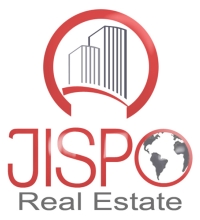Investing in Lebanon presents a complex landscape with both opportunities and significant challenges.
Historically, Lebanon has been open to foreign direct investment (FDI) and boasts a liberal investment climate with:
- A free market economy and private initiative.
- Absence of restrictions on the entry or exit of firms and the transfer of money.
- A free financial environment with transparent laws and no limits on the establishment of banks.
- Relatively low taxation, including a 15% corporate tax rate.
- Investment incentives offered by the government through the Investment Development Authority of Lebanon (IDAL), including potential tax exemptions, fee reductions, and support services in priority sectors.
However, recent years have seen significant challenges that have dampened Lebanon’s attractiveness for investment: - Severe political instability.
- Macroeconomic imbalances.
- A significant foreign currency crisis.
Despite these challenges, FDI inflows have seen a recent increase: - According to the World Investment Report 2024, FDI inflows were estimated at USD 655 million in 2023, a 24.2% increase compared to the previous year.
- However, this is still well below the USD 2 billion average recorded in 2018-2020.
- The total stock of FDI in Lebanon stood at USD 71.2 billion at the end of the same period.
Lebanon’s Investment Law No. 360 offers tailored incentives for large investment projects, which can include: - Tax exemptions for up to 10 years.
- Reductions on construction and work permit fees.
- Total exemption on land registration fees.
Priority sectors for investment identified by IDAL include: - Industry
- Media
- Technology
- Telecommunications
- Tourism
- Agriculture and Agro-industry
Important Considerations for Investors: - Due diligence is crucial given the current economic and political climate.
- Understanding the specific incentives and regulations related to your sector is essential.
- Assessing the risks associated with currency fluctuations and potential instability is necessary.
Where to find more information: - Investment Development Authority of Lebanon (IDAL): This is the primary government agency for promoting and facilitating investment.
- UNCTAD’s International Investment Agreements Navigator: Provides a list of investment treaties signed by Lebanon.
- World Investment Report (UNCTAD): Offers analysis and data on global and regional FDI trends.
- International Trade Portals: Such as the one provided by Lloyds Bank, offer country-specific investment information.
In conclusion, while Lebanon has historically been an open and attractive destination for investment, the current environment requires careful consideration of the existing challenges and potential risks. However, the government is actively seeking to attract investment through incentives and support in key sectors.










